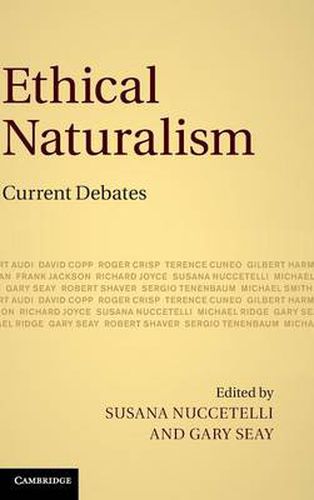Readings Newsletter
Become a Readings Member to make your shopping experience even easier.
Sign in or sign up for free!
You’re not far away from qualifying for FREE standard shipping within Australia
You’ve qualified for FREE standard shipping within Australia
The cart is loading…






Ethical naturalism is narrowly construed as the doctrine that there are moral properties and facts, at least some of which are natural properties and facts. Perhaps owing to its having faced, early on, intuitively forceful objections by eliminativists and non-naturalists, ethical naturalism has only recently become a central player in the debates about the status of moral properties and facts which have occupied philosophers over the last century. It has now become a driving force in those debates, one with sufficient resources to challenge not only eliminativism, especially in its various non-cognitivist forms, but also the most sophisticated versions of non-naturalism. This volume brings together twelve new essays which make it clear that, in light of recent developments in analytic philosophy and the social sciences, there are novel grounds for reassessing the doctrines at stake in these debates.
$9.00 standard shipping within Australia
FREE standard shipping within Australia for orders over $100.00
Express & International shipping calculated at checkout
Ethical naturalism is narrowly construed as the doctrine that there are moral properties and facts, at least some of which are natural properties and facts. Perhaps owing to its having faced, early on, intuitively forceful objections by eliminativists and non-naturalists, ethical naturalism has only recently become a central player in the debates about the status of moral properties and facts which have occupied philosophers over the last century. It has now become a driving force in those debates, one with sufficient resources to challenge not only eliminativism, especially in its various non-cognitivist forms, but also the most sophisticated versions of non-naturalism. This volume brings together twelve new essays which make it clear that, in light of recent developments in analytic philosophy and the social sciences, there are novel grounds for reassessing the doctrines at stake in these debates.